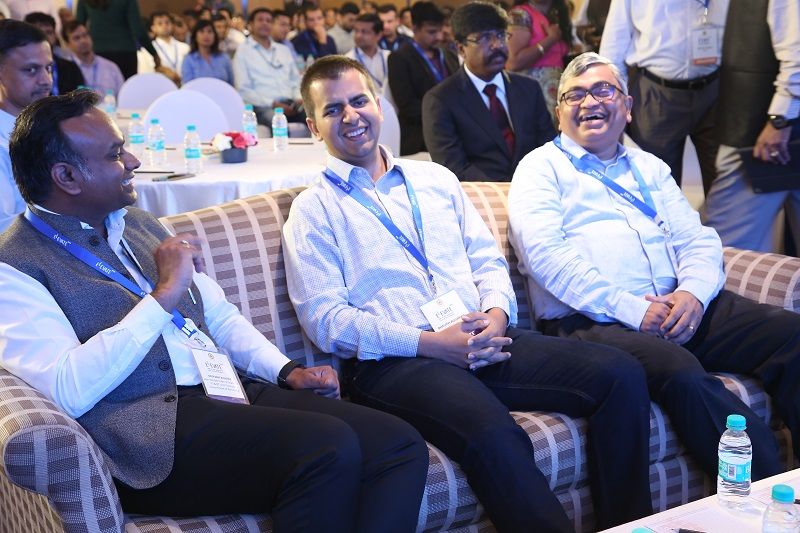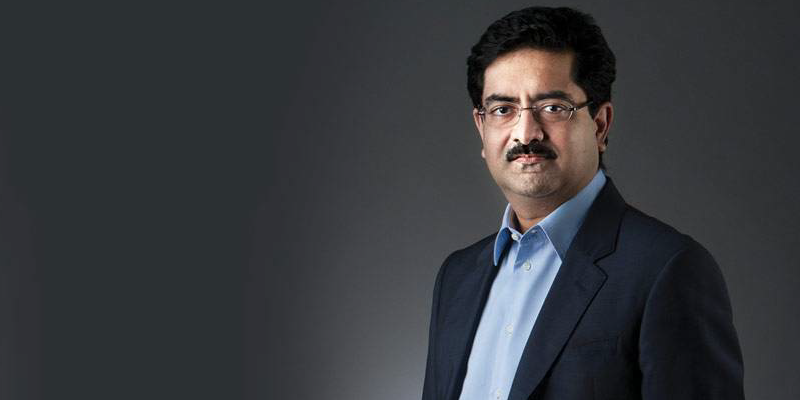How ‘Making in Karnataka’ has worked out for Ola
At a fireside chat in Bengaluru recently, Ola’s Bhavish Aggarwal and Mindtree’s Krishnakumar Nagarajan discussed the various aspects of starting up — from ideation to execution.
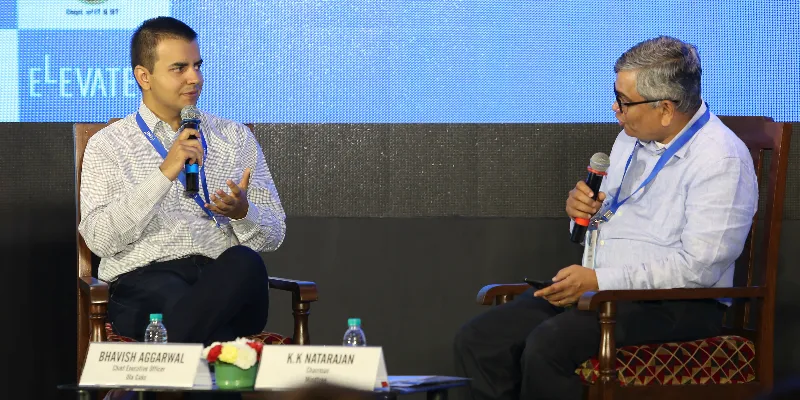
It was 9 am at Hotel Lalit Ashok, Bengaluru, and a steady stream of cars and autorickshaws were pouring in to drop off people who were making their way for Elevate 100, an initiative of the Department of Information Technology and Biotechnology, Government of Karnataka, which aims to provide a comprehensive entrepreneurship platform for startups.
If one looked closely at most of these vehicles, a striking feature that has now become commonplace is a smartphone dock and smartphone placed on the driverside of the vehicle and autos. These devices have turned into a source of livelihood for many, helping them navigate through the city while picking up and dropping commuters. Two companies, Ola and Uber, have been at the forefront of this mobility revolution.
Bhavish Aggarwal, Co-founder and CEO of Ola, and Krishnakumar Natarajan, Executive Chairman, Mindtree took to the stage for a fireside chat, to speak at length about different aspects of starting up, from bootstrapping to raising funds and scaling to pivots and the government's efforts in working with startups. Bhavish shared a lot of anecdotes and personal insights on many of these aspects. Here are some highlights from the conversation.
Starting up Ola Trips in 2010
Krishnakumar asked Bhavish to recount his personal journey as an entrepreneur who came from a middle-class family from Ludhiana, a Tier II city, and how he ended up in Bengaluru, now running the third-most-valuable Internet company in India.
As hundreds of startups from Bengaluru and those that had travelled for this event from Tier II cities like Hubli, Belgaum, Bijapur and Hospet looked on, Bhavish recalled that after graduating from IIT Bombay in 2008, he had joined Microsoft as a developer.

After spending two years at the job, he decided to start a travel company with his college friend, Ankit Bhati, and looked to his family for their blessings. At that stage Bhavish was toying with the idea of OlaTrips, a platform to book weekend trips and holidays, and pitched it to his father as a technology venture. Hearing this his father, a doctor, asked him to cut down on the buzzwords and asked, “Are you starting a travel agency?”
Bhavish asked his family to let him try his hand at this for two years, failing which he would rejoin the workforce. They relented. Bhavish and Ankit soon realised that people were more interested in finding a hassle-free cab booking experience for long trips rather than travel experiences. So they pivoted to helping people find cabs instead.
The explosion of the smartphone market and the inbuilt GPS systems in them, opened doors for an on-demand cab aggregator services and the duo were among the early movers to cash in on the trend.
Ecosystem support from family to the government
Fast forward to 2017, Ola now has an estimated seven lakh driver partners on their platform across 110 cities. They also got a lot of interest from investors and have gone on to raise close to $1.5 billion across eight rounds of funding.
Looking back, Bhavish noted that in 2010, though his family supported him, society at large wasn't very accepting of entrepreneurship. He remarked,
Whenever I visit my alma mater or attend events like these, I feel today that there is so much energy in the youth and they are open to experimenting and also failing because of the ecosystem now.
While the interest in the private sector from angel investors and venture capitalists in India has grown tremendously, Krishnakumar asked Bhavish what he thought of the government officials, through his many interactions with them, because of Ola’s operations across 110 Indian cities.
Krishnakumar requested Bhavish to give an impartial answer on the focus of Karnataka government in engaging with the startup ecosystem and entrepreneurs, and what works and what doesn’t. Bhavish said,
I’m a Punjabi middle-class boy, who went to study in Maharashtra, and is now building his company here in Karnataka. That speaks for how the Karnataka ecosystem has fostered entrepreneurship. This event itself and a bunch of other initiatives showcase the focus the Karnataka government has on entrepreneurship and fostering starting up as a grounds-up movement.
Bhavish also noted that such events provide early-stage entrepreneurs with access to mentors, encouragement in the form of connections to other companies and also capital infusion. The government has also earmarked a lot of money for startups, including 10 crores for the state's women entrepreneurs.
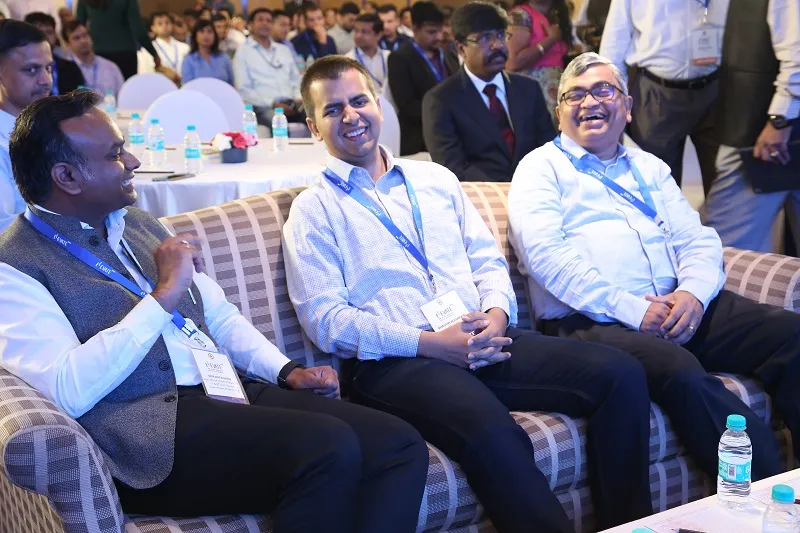
Krishnakumar noted that the success of these initiatives and the ones in the pipeline will be a lasting legacy of the government. He stated,
With all these ground-level initiatives, Karnataka will not just be leader of the startup world today but for the next 10 years to come.
The toughest part of going from Rs 34 lakh to Rs 10,000 crore
In past interviews, Bhavish had remarked that out of all their fund-raising activities, the first angel round of Rs 34 lakh was the hardest. Krishnakumar asked him to elaborate about the experience and share his learnings.
The auditorium, after all, consisted of representatives from over 300 startups who would be pitching to government officials over the next two days. Bhavish said,
The first angel round was the toughest and most excruciating time I went through….Don't get overly attached to the idea. Be true to yourself and the business you are trying to build.
While they were bootstrapping Bhavish and Ankit worked out of a one-bhk apartment. While Bhavish went out for meetings, Ankit would sit inside and code all day.
Bhavish pitching at YourStory's eSparks 2011-
When they got their angel funding, they started working out of a small office, which was in a suburban mall in Mumbai. Bhavish explained that raising capital is only the beginning of the journey. The startup needs to create value and return money to shareholders. So it is important to be frugal from day one.
Choosing the right investor
Bhavish remarked that more than the money, startups should look to partner with investors who believe in their mindset and can think long term, beyond just the numbers. He said,
For every round we raised, we never took money from the person (firm) offering us the highest valuation. We have always taken money from the person who believes in our journey and end vision, for the long haul.
Bhavish also stressed the importance of having a good personal rapport with investors, who will continue backing the company during tough times, like pivots or while facing irrational competition from rivals. He observed,
I feel that the best investors are those who have been entrepreneurs in the past or have seen entrepreneurship from close quarters. They understand what it takes to go from early to mid and late stage….
Scaling up and believing in the vision
Bhavish noted that most startups go through a lot of ambiguity while scaling up and hence it is important to stick to the vision, over-communicate with employees while also getting feedback from customers. He said,
It is important to not be emotionally attached to your idea, but you still need to be committed… I believe that founders need to have a bit of split personality and balance out pure commitment with some rational thinking and ‘outside-end view’ of their business. Talk to everyone around you.
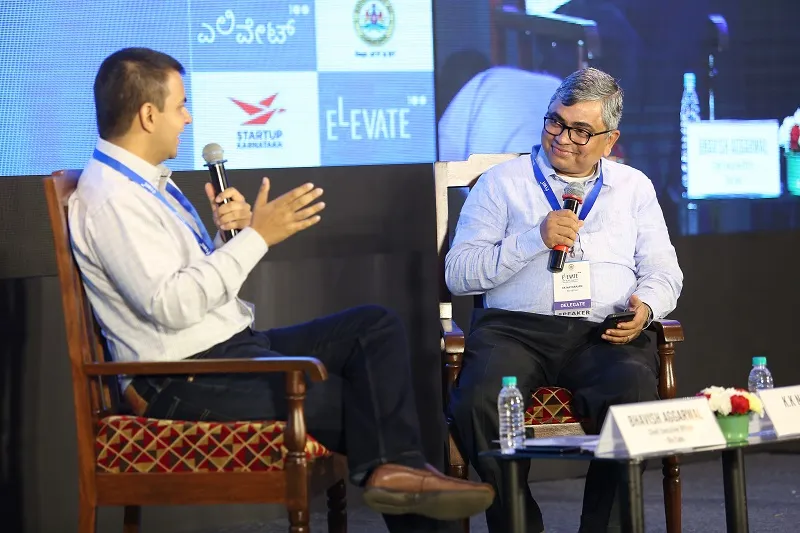
It is good to surround yourself with people who are critical of you and give you honest feedback about yourself and your business. Bhavish said that his wife is his biggest critic. He joked,
It initially took me three years to convince her to use Ola. We were in Bombay then and she was like, nahi mein Kaali Peeli use karloongi (No, I’ll use the local taxis).
Talking about the secret sauce behind Ola’s progress and current scale, Bhavish said, “We focussed on the first principles, and scale came naturally as a result of that.”
Over the past couple of years of growth, Bhavish said that Ola trained new recruits and also old employees to think at scale. He noted that founders should be able to distill the core values and core cultural traits and be able to implement it as scale. If a startup fails, then it will become bureaucratic as an organisation and it will eventually stop innovating and scaling. A good countermeasure, he said, is,
You have to over communicate with your team and clearly define what your culture is and exhibit it. Your culture is not the 10 values that hang on your door.
Making in Karnataka and India, and thwarting competition?
Bhavish highlighted the exciting couple of years that Ola has had. In July 2014, it celebrated 10,000 rides a day and at that time felt that it had arrived. At that time Uber had grown aggressive in India, but Ola was able to hold their ground thanks to their first principles approach, and with local innovations like introducing Ola Autos and others. Talking about the mindset, he said,
But what we have realised is that as local entrepreneurs, our strength is the knowledge of the country, specifically things about how Indian consumers across different cities think, how drivers think. In India, respect has currency. If you treat your driver partners with respect they will pay you back with loyalty. Throwing money around only doesn’t solve the problem.
Uber, too, has been working closely with the Indian government and had recently launched a UPI integration, as part of their commitment to the government’s vision of cashless India. Bhavish noted that Uber is good competition and a company with a lot things going for it, strong in technology and doing things well in the western world. But he believes that Ola has a better understanding of India.
He compared the competition to the Vietnam war and made a statement similar to what he had said said at a TiE event earlier this year, he noted,
We are the local guerillas…We have the Americans carpet bombing us but we will go into the nooks and corners of the country and we will find those opportunities in niche areas and in large areas.

During a rapid fire question round, Krishnakumar jokingly asked Bhavish, who he liked more -- Travis Kalanick or Narendra Modi. Bhavish laughed and remarked neither and then quipped that his favourite person at this time was Dara Khosrowshahi, the new CEO of Uber.
To all the startups looking to venture into the Indian startup ecosystem and make it in Karnataka and India, Bhavish advised that they should look to design their business model on Indian roots. He said,
Designing business models focussed on our Indian roots, will give you defensibility and can help you beat any competition.
Website- Elevate100
Related read: How tech, new business models could change cab industry, make short rides free






